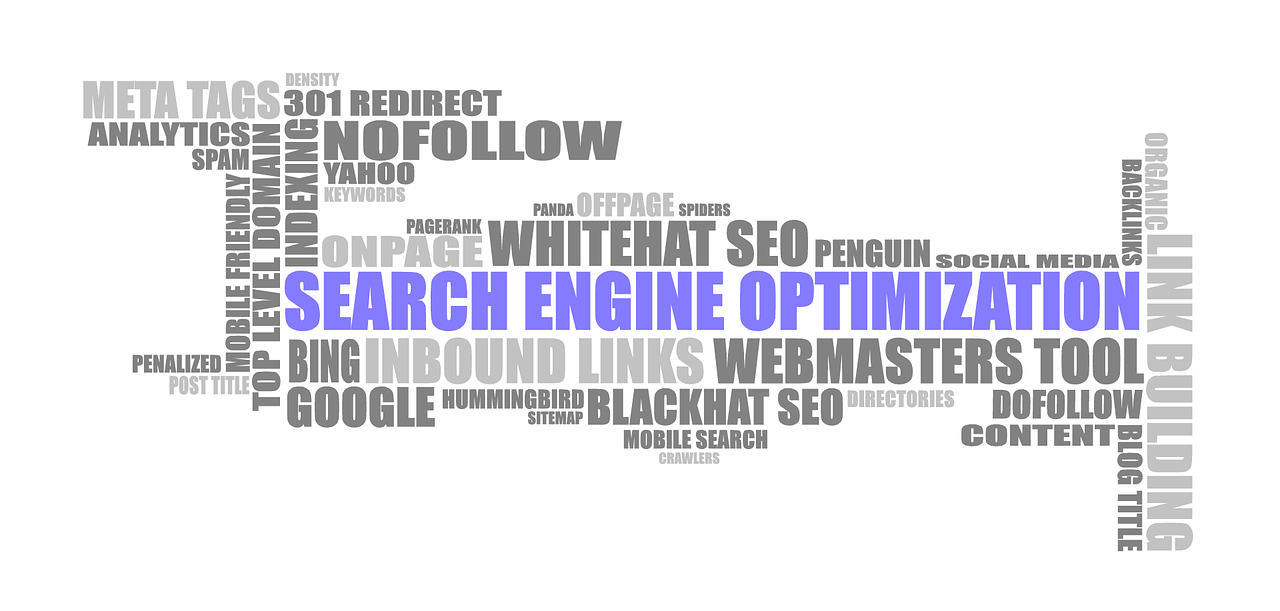Understanding website authority: key factors that influence your site’s credibility
|
IN BRIEF
|
In today’s digital landscape, website authority plays a pivotal role in determining your site’s credibility and visibility. Understanding the key factors that influence this authority is crucial for businesses and individuals seeking to strengthen their online presence. Elements such as domain authority, page authority, and effective SEO practices contribute significantly to a website’s reputation and ability to attract organic traffic. By mastering these aspects, one can enhance their site’s credibility and improve overall success in the competitive online environment.

Improving Your Website’s Crawlability
Enhancing your website’s crawlability is crucial for increasing its visibility on search engines. Search engines use crawlers to explore your site and index its content; if your website is poorly structured, it can hinder this process. To improve crawlability, you should ensure your URLs are easy to read and follow best practices in website structure. This includes using a logical hierarchy for your navigation and providing an intuitive sitemap that guides crawlers to your most important pages. Implementing such strategies will not only help search engines understand your content better but also improve the experience for your visitors.
For example, consider a website that has an intricate navigation system buried under multiple layers. A clear and concise menu that categorizes content effectively allows bots to access and index pages efficiently. Also, make sure to fix any broken links and reduce unnecessary redirects, as these can obstruct crawlers from accessing your site fully. Furthermore, optimizing your website for mobile usage is vital, as mobile-friendly designs are favored by search engines and enhance user experience. By focusing on these key aspects, you will significantly improve your site’s crawlability.
Understanding Organic Traffic
Organic traffic refers to the visitors who arrive at your website through unpaid search results. To boost this type of traffic, implementing a solid SEO strategy is essential. Start by conducting keyword research to identify the terms your target audience is using. Create valuable content that addresses these keywords while also providing useful and informative material for your readers. This approach not only attracts more visitors but also enhances your website’s credibility.
A relevant example is a blog that covers topics in-depth based on current industry trends. By consistently providing high-quality articles with relevant keywords, the blog gradually increases its search engine rankings, making it easier for potential readers to find it. In addition, leveraging social media to share this content can further amplify your reach and attract organic traffic to your site. By focusing on these strategies, one can master the art of attracting organic traffic effectively.
SEO Best Practices for Visibility Boost
Adhering to SEO best practices is essential for improving your website’s visibility on search engines. Key tactics include optimizing your meta tags, employing relevant keywords throughout your content, and enhancing image descriptions. Furthermore, regularly updating your content ensures that it remains relevant and valuable to your audience. A website that regularly features fresh articles will stand a better chance of ranking higher in search results, as search engines favor updated content.
For instance, think of an e-commerce website that applies these practices. By optimizing product descriptions with targeted keywords and including user reviews, it not only improves searchability but also builds trust among its site visitors. Additionally, focusing on local SEO techniques, such as listing your business in local directories, can also impact visibility in specific markets. By utilizing these best practices, your website will be better positioned to capture the attention of potential customers.
The Significance of Domain Authority
Domain authority is a critical factor in determining how well your website ranks in search engine results. It is a score that predicts a website’s ability to rank higher than competitors based on various factors, including backlinks and overall site performance. Building a strong domain authority helps your site gain credibility over time. To improve your score, focus on acquiring high-quality backlinks from reputable sites, ensuring that they contribute positively to your authority.
For example, if a well-established website in your niche links to your content, it signals to search engines that your site is trustworthy. Additionally, maintaining an active social media presence and engaging with your audience can lead to better visibility and increased backlinks. By actively working on your domain authority, you improve both your ranking potential and online presence.
Understanding White Hat SEO Techniques
Employing white hat SEO techniques is essential for sustainable growth of your website. Unlike black hat methods that can lead to penalties, white hat strategies comply with search engine guidelines and focus on providing genuine value to users. Tactics include ethical link building, creating informative content, and enhancing the overall user experience on your site. By prioritizing quality over quantity, white hat practices pave the way for long-term success.
To illustrate, imagine a blog that prioritizes thorough article writing based on extensive research. By not only addressing keywords but also including valuable insights, the blog garners genuine interest and naturally attracts backlinks over time. This approach creates a virtuous cycle where quality content leads to higher rankings, attracting more traffic, which in turn leads to more links. Implementing white hat techniques ensures your website’s sustainability and growth while preserving its reputation in the digital space.
Understanding Page Authority
This concept of page authority is integral to the SEO landscape, referring to the predictive score of a page’s ranking potential in search engines. Just as domain authority encompasses the entire site, page authority zeroes in on individual pages based on their backlinks, performance metrics, and other factors. Understanding this serves as an advantage since optimizing specific pages can boost overall site performance.
For example, if a blog post exhibits several high-quality inbound links, its page authority rises, leading to improved visibility in search results. Utilizing internal linking can also enhance page authority, as it directs search engines to valuable pages within your site. By focusing on both internal and external linking strategies, you strengthen your site’s structure, leading to better performance in search rankings.
Creating an SEO-Friendly Website Structure
A well-organized website structure is fundamental in enhancing SEO. A logical configuration aids both search engines and users to navigate through the site seamlessly. Essentials for an SEO-friendly structure include an intuitive hierarchy, clear URLs, and a well-planned sitemap. This framework allows search engines to index pages effectively, contributing to overall visibility.
Consider a website designed with distinct categories and subcategories. This design significantly enhances user experience while aiding crawlers in content discovery. Additionally, ensure that your site loads quickly and is mobile-responsive, as these factors contribute to a positive user experience and higher search engine rankings. By prioritizing a structured approach, you set the foundation for successful SEO practices.
Understanding On-Page SEO
On-page SEO refers to the optimization techniques applied directly to the content and structure of your website pages. This includes working on aspects like target keywords, headers, and content quality. When done correctly, on-page SEO allows you to communicate effectively with both users and search engines, increasing the likelihood of ranking higher in search results.
For instance, a blog post that effectively uses headers to break text into manageable sections improves readability. Also, incorporating keywords in strategic locations, such as the beginning of paragraphs, ensures that crawlers recognize them quickly. Furthermore, enhancing images with ALT tags and captivating meta descriptions can further boost your on-page SEO performance. By maintaining high standards in these areas, you facilitate the search engine optimization process effectively.
Understanding the Importance of Off-Page SEO
Off-page SEO involves actions taken outside of your own website that impact its ranking potential. This includes building backlinks, managing social media engagement, and fostering online reputation. The quality and quantity of external signals can significantly influence how your site is perceived by search engines.
For example, an e-commerce site that engages with customers through social media platforms and earns positive reviews can enhance its credibility. Through these interactions, potential customers see social proof, which can lead to increased trust and traffic. Moreover, by acquiring high-quality backlinks from relevant sites, you further enhance your website’s authority. By understanding and applying effective off-page SEO strategies, you can propel your website towards greater success in the digital marketplace.

Strategies to Enhance Your Website’s Crawlability
Improving your website’s crawlability is essential for enabling search engines to index your pages effectively. A well-coded site with clean URL structures enhances the chances of better indexing. For instance, using XML sitemaps can direct search engine bots to your most critical pages, while ensuring that your robots.txt file is correctly configured prevents indiscriminate crawling, which can lead to indexing issues. Implementing structured data using Schema.org markup can further assist search engines in understanding the content context, making it easier for them to deliver rich snippets on search results pages. According to recent statistics, a website that is optimized for crawlability can see a 25% increase in organic traffic within six months. This demonstrates the impactful relationship between a site’s technical health and its visibility online.
While the primary focus often lies on on-page SEO, understanding the importance of off-page SEO practices also plays a crucial role in your website’s overall performance. The credibility that backlinks from reputable sites provide can improve not only domain authority but also the likelihood of search engines crawling and indexing your site frequently. By nurturing both internal linking structures and external partnerships, you can foster an environment that encourages better crawl regularity and ranking potential. For more insights on these concepts, check out the comprehensive guide on how to improve your website’s crawlability.
Enhancing Your Website’s Crawlability
Practical Strategies for Optimal Visibility
Improving your website’s crawlability is essential for ensuring that search engines can discover and index your content effectively. A well-structured website not only enhances its chances of ranking higher but also contributes to a better user experience. Here are some practical steps to consider:
For instance, utilizing a clear, hierarchical structure can dramatically help search engines navigate your site. Implementing a robust sitemap can ensure that all pages are indexed while reducing the chances of dead links.
- Optimize URL structure: Use concise and descriptive URLs to enhance both usability and search engine optimization.
- Leverage internal linking: Create pathways for search engines to follow, linking relevant content within your site.
- Improve website speed: Delays can hinder crawlability; thus, optimizing images and leveraging browser caching can help.
- Implement SEO-friendly website structure: This includes organizing content logically and utilizing the appropriate header tags.
Incorporating these elements can significantly boost your site’s performance. For a deeper understanding, consider exploring on-page SEO practices that further optimize individual pages. For example, enhancing content with relevant keywords, engaging meta descriptions, and alt text for images are all effective methods.
Understanding the importance of organic traffic and employing white hat techniques not only bolsters your website’s credibility but also ensures sustainable growth. Techniques like gathering quality backlinks are crucial, making it important to focus on off-page SEO strategies that contribute to your site’s authority.
Additionally, exploring page authority can provide insights into how individual pages rank in search results, allowing you to adjust your strategies accordingly.

Enhancing Your Website’s Visibility: Key Strategies
Improving your website’s crawlability is essential for enhancing its visibility in search engine results. To achieve this, ensure that your site has a clear and logical structure, allowing search engines to easily navigate and index your web pages. Utilize XML sitemaps and robots.txt files correctly to guide crawlers effectively.
Another fundamental aspect to consider is organic traffic. Understanding how to attract this type of traffic involves implementing strategies such as optimizing keywords, improving your site’s loading speed, and producing high-quality content that resonates with your target audience.
When it comes to SEO best practices, prioritizing on-page SEO is crucial. This includes optimizing page titles, headers, and meta descriptions, as well as ensuring that your content is relevant and engaging. Furthermore, implementing white hat SEO techniques is vital for achieving sustainable growth while avoiding penalties from search engines.
The concept of domain authority significantly impacts your website’s ability to rank higher. A higher domain authority score correlates with better positioning in search engine results, making it essential to build a solid online reputation through a well-curated backlink profile and quality content.
Understanding page authority is equally important as it reflects how well a specific page can rank. Focusing on building quality inbound links and optimizing for individual page performance can help in boosting page authority.
In addition to on-page SEO, the importance of off-page SEO cannot be overlooked. Engaging in social media marketing, building partnerships, and acquiring backlinks from reputable sources contribute significantly to improving your site’s visibility and authority.
Overall, implementing these practices not only enhances your website’s authority but also increases your chances of achieving higher search engine rankings and attracting organic traffic.

Improving your website’s crawlability is essential for ensuring that search engines can effectively index your pages. Begin by optimizing your site structure, utilizing a clear hierarchy and organized internal linking. This keeps your content accessible and helps search engines recognize which pages are most important.
When it comes to driving organic traffic, employing effective strategies is crucial. Focus on creating high-quality, relevant content that answers user queries and attracts backlinks from reputable sources. This not only increases your site’s visibility but also enhances its domain authority.
Adhering to SEO best practices is vital for boosting your website’s visibility. Implementing white hat SEO techniques ensures that your growth is sustainable and aligns with search engine guidelines. Understanding both page authority and on-page SEO techniques, such as proper use of keywords and meta tags, will significantly improve your site’s ranking.
Finally, do not overlook the importance of off-page SEO strategies. Engaging with your audience through social media and cultivating relationships with influencers can lead to increased traffic and enhanced credibility. By focusing on these foundational factors, you can elevate your website’s authority and overall performance in the digital landscape.














Post Comment